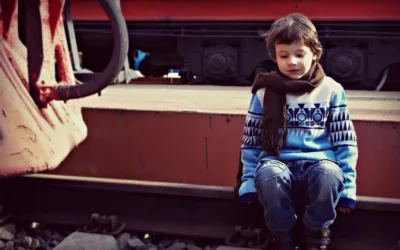In the vibrant tapestry of South African society, a dark thread remains interwoven – the lasting psychological impact of apartheid. Nearly three decades after the official end of this oppressive system, its effects continue to reverberate through the minds and hearts of millions. This article delves into the complex and often overlooked mental health crisis facing South Africa today, a crisis deeply rooted in its troubled past.
The Lingering Specter of Apartheid
Apartheid, the system of institutionalized racial segregation and discrimination that governed South Africa from 1948 to 1994, was more than just a political regime. It was a pervasive force that seeped into every aspect of life, leaving an indelible mark on the collective psyche of the nation. The systematic dehumanization, violence, and oppression experienced during this era have cast a long shadow over subsequent generations.
Dr. Nomfundo Mogapi, a clinical psychologist and executive director of the Centre for the Study of Violence and Reconciliation in Johannesburg, explains, “The trauma of apartheid didn’t end with its dismantling. It continues to manifest in various forms of psychological distress, affecting not just those who lived through it, but their children and grandchildren as well.”
Intergenerational Trauma: A Legacy Passed Down
One of the most insidious aspects of apartheid’s psychological toll is the phenomenon of intergenerational trauma. This concept refers to the transmission of the effects of trauma from one generation to the next, even if the younger generation didn’t directly experience the traumatic events.
Research conducted by the University of Cape Town’s Department of Psychiatry and Mental Health has shown alarming rates of anxiety, depression, and post-traumatic stress disorder (PTSD) among young South Africans born after the end of apartheid. These findings suggest that the psychological scars of the past are being passed down through families and communities.
Dr. Zukiswa Zingela, Head of Psychiatry at Nelson Mandela University, elaborates: “We’re seeing patterns of behavior, belief systems, and emotional responses in young people that mirror those of their parents and grandparents who lived under apartheid. This includes heightened levels of fear, mistrust of authority, and a deep-seated sense of racial inequality.”
The mechanisms of this intergenerational transmission are complex. They include:
- Epigenetic changes: Emerging research suggests that trauma can actually alter gene expression, potentially passing down vulnerability to stress and mental health issues.
- Parenting styles: Parents who experienced trauma may unknowingly pass on maladaptive coping mechanisms or struggle to provide emotional security.
- Societal narratives: The collective memory and ongoing discussion of apartheid in South African society keep the trauma alive, even for those who didn’t experience it directly.
- Persistent inequality: The economic and social disparities that persist in post-apartheid South Africa serve as constant reminders of the past, reinforcing trauma responses.
Post-Traumatic Stress Disorder: A Nation’s Wound
While PTSD is often associated with combat veterans or survivors of acute traumatic events, the pervasive nature of apartheid created conditions for widespread, chronic traumatization. The constant threat of violence, forced removals, and daily humiliations experienced by non-white South Africans during apartheid meet the clinical criteria for traumatic stressors.
A landmark study published in the South African Journal of Psychology found that over 20% of South African adults show symptoms consistent with PTSD. This rate is significantly higher than global averages and is directly linked to apartheid-era experiences and their ongoing consequences.
Symptoms of PTSD in this context often include:
- Hypervigilance and exaggerated startle responses
- Intrusive memories or flashbacks of traumatic events
- Avoidance of situations that trigger memories of apartheid
- Emotional numbing or detachment
- Persistent negative beliefs about oneself or the world
Dr. Garth Stevens, a professor of psychology at the University of the Witwatersrand, notes, “What makes PTSD in the South African context particularly challenging is its collective nature. It’s not just individual trauma; it’s a shared experience that has shaped the entire social fabric.”
Anxiety and Depression: The Silent Epidemic
Alongside PTSD, rates of anxiety and depression in South Africa have reached alarming levels. The South African Stress and Health (SASH) study, the first and largest population-based study of common mental disorders in Africa, found that nearly one-third of South Africans will experience a common mental disorder in their lifetime.
The roots of this mental health crisis can be traced back to apartheid in several ways:
- Economic stress: The persistent economic inequality stemming from apartheid-era policies contributes to chronic stress and feelings of hopelessness.
- Disrupted social structures: Forced removals and migrant labor systems under apartheid fractured families and communities, weakening support systems crucial for mental health.
- Internalized racism: The psychological impact of systemic racism has led to internalized feelings of inferiority and self-doubt among many non-white South Africans.
- Unresolved grief: The loss of loved ones, opportunities, and cultural identity during apartheid has left a legacy of unprocessed grief.
Dr. Saths Cooper, a clinical psychologist and anti-apartheid activist, emphasizes, “We’re dealing with a multi-layered crisis. The anxiety and depression we see today are often rooted in unresolved traumas from the past, compounded by current socio-economic challenges.”
The Role of Healing and Reconciliation
Addressing the psychological toll of apartheid is crucial not just for individual well-being, but for the very future of South African society. The process of healing and reconciliation, while challenging, offers a path forward.
The Truth and Reconciliation Commission (TRC), established in 1996, was a groundbreaking attempt to address the psychological wounds of apartheid. While it made significant strides in acknowledging past atrocities and promoting dialogue, many mental health professionals argue that its work was just the beginning.
Dr. Pumla Gobodo-Madikizela, Research Chair in Historical Trauma and Transformation at Stellenbosch University, explains, “The TRC opened up important conversations, but true healing requires ongoing effort. We need sustained, community-based interventions that address both historical trauma and current stressors.”
Several initiatives are working to promote healing and mental health in South Africa:
- Community-based trauma counseling: Organizations like the Trauma Centre for Survivors of Violence and Torture provide culturally sensitive mental health services.
- School-based programs: Initiatives that teach coping skills and promote racial understanding in schools aim to break the cycle of intergenerational trauma.
- Traditional healing practices: Incorporating indigenous healing methods alongside Western psychological approaches offers a more holistic and culturally resonant path to recovery.
- Public art and storytelling projects: Creative outlets that allow for the expression and processing of collective trauma play a crucial role in healing.
- Economic empowerment programs: Addressing the persistent economic inequalities is seen as essential for improving overall mental health outcomes.
Challenges and the Path Forward
Despite these efforts, significant challenges remain in addressing South Africa’s mental health crisis:
- Stigma: Mental health issues are still heavily stigmatized in many South African communities, preventing people from seeking help.
- Resource limitations: There is a severe shortage of mental health professionals and facilities, particularly in rural areas.
- Political will: Mental health often takes a backseat to other pressing issues in government policy and funding priorities.
- Ongoing racial tensions: While apartheid has ended, racial divisions persist, complicating the healing process.
Dr. Harriet Etheredge, a bioethicist at the University of the Witwatersrand, argues, “We need a national commitment to mental health that matches the scale of the problem. This means not just more resources, but a fundamental shift in how we view and prioritize mental well-being.”
A Call for Collective Healing
The psychological toll of apartheid on South Africa is a stark reminder of how historical events can shape the mental health of entire populations for generations. As the country continues to grapple with this legacy, it’s clear that healing requires a multifaceted approach that addresses both past traumas and present-day challenges.
By acknowledging the deep-seated psychological wounds inflicted by apartheid, fostering open dialogue, and investing in comprehensive mental health services, South Africa can begin to untangle the complex web of trauma that still binds its people. This journey towards collective healing is not just about addressing the pains of the past, but about building a more resilient, empathetic, and mentally healthy society for future generations.
As Archbishop Desmond Tutu once said, “There is no future without forgiveness.” To this, we might add: there is no true forgiveness without healing. The path forward for South Africa lies in confronting its painful past, nurturing psychological resilience, and fostering a culture of mental well-being that can break the chains of historical trauma once and for all.



